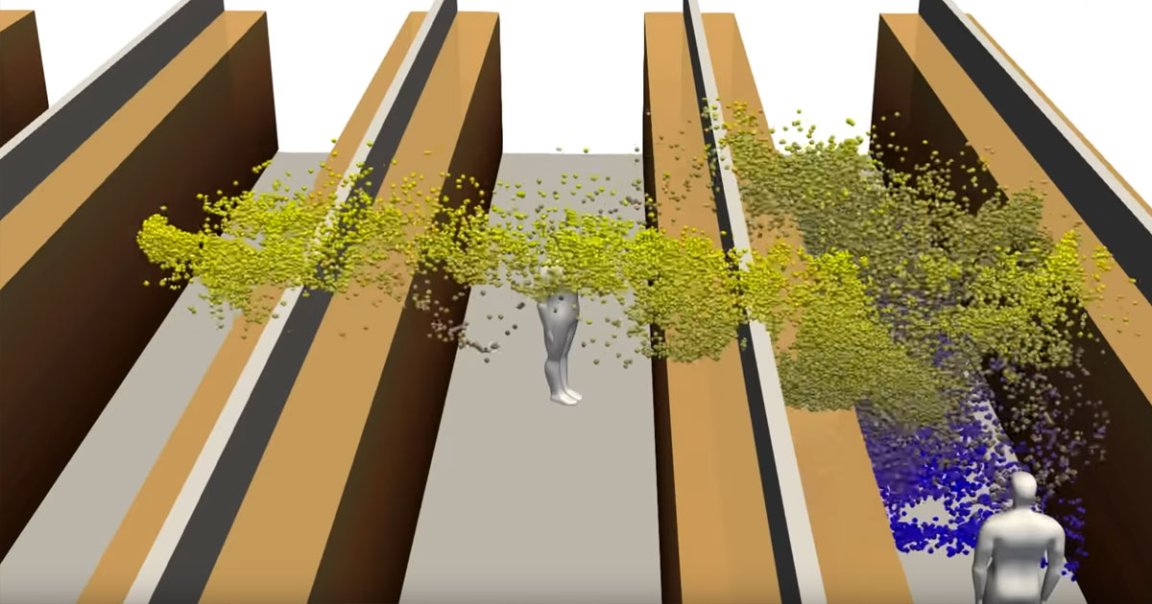
A new 3D-rendered simulation by Finnish researchers shows how aerosol particles coughed out by a person in an indoor environment can spread terrifyingly far.

The research aims to determine how the coronavirus can spread through the air, and found that “aerosol particles carrying the virus can remain in the air longer than was originally thought, so it is important to avoid busy public indoor spaces,” according to a statement.
The 3D environment is trying to provide an analogue for the average grocery store with run-of-the-mill ventilation.
“In the 3D model, a person coughs in a corridor bounded by shelves under representative indoor ventilation air flow conditions,” reads the video. “As a result of coughing, an aerosol cloud travels in the air to the corridor. It takes up several minutes for the cloud to spread and disperse.”
“Someone infected by the coronavirus, can cough and walk away, but then leave behind extremely small aerosol particles carrying the coronavirus,” explained Aalto University assistant professor Ville Vuorinen in the statement. “These particles could then end up in the respiratory tract of others in the vicinity.”
Aerosol particles from a dry cough — a common symptom of COVID-19 — are so small (less than 15 micrometers) that they float through the air rather than sinking to the floor. Air currents can help them spread. According to the researchers, previous studies have shown that influenza A viruses can be found in even smaller particles — less than five micrometers.
The model underlines that avoiding crowded places or “nodal points” could be an effective way to curb the spread of the virus.
Masks have also proven to be an extremely effective way to curb the spread through aerosol particles and droplets — that is, if a recent study published in the prestigious scientific journal Nature is to be believed.